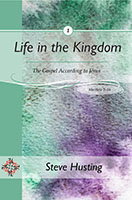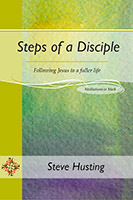I used to interpret my Bible that way. When I trusted Christ, God imputed his righteousness to me. Therefore I thought the verses referring to the good, wise, and righteous I applied to myself. Everything evil I applied to the unregenerate … until I found those same negative verses in the NT being applied to the believer.
Wicked
“Therefore ‘put away from yourselves that wicked person’ ” (1 Corinthians 5:13). Here, Paul applied an OT verse (Deuteronomy 13:5) to a man in the church who had immoral relations and was corrupting the others. He was pronounced “wicked” and ordered removed from the church until proofs of repentance were seen. He was still a Christian, though, and was allowed back into the church meeting when he repented.
Evil
“For he is God’s minister to you for good. But if you do evil, be afraid; for he does not bear the sword in vain; for he is God’s minister, an avenger to execute wrath on him who practices evil” (Romans 13:4). Many verses warn us about stopping certain bad behaviors. This verse was directed to Christians in Rome. Be assured that if we willfully continue in the way God has forbidden us, he will not call us righteous. “Little children, let no one deceive you. He who practices righteousness is righteous, just as He is righteous” (1 John 3:7).
Good and Evil
“Let him turn away from evil and do good; Let him seek peace and pursue it. For the eyes of the Lord are on the righteous, and His ears are open to their prayers; but the face of the Lord is against those who do evil” (1 Peter 3:11-12). In this verse, Peter does not only quote the OT (Psalms 34:15-16), but applies the positive and negative consequences to the believer. The Lord makes a difference between believers who are good and bad according to their works.
Proud and Humble
“Likewise you younger people, submit yourselves to your elders. Yes, all of you be submissive to one another, and be clothed with humility, for ‘God resists the proud, but gives grace to the humble’ ” (1 Peter 5:5). Peter encourages us to be humble, using an OT teaching (Proverbs 3:34). He hopes the negative consequences will carry enough force to alter our behavior so that we may receive grace.
Wicked and Lazy
“His lord answered and said unto him, Thou wicked and slothful servant” (Matthew 25:26a). After returning to his home, this lord asked his servants to give an account of how they fared with his goods. The third servant stepped forward and admitted burying the goods in the ground. For that, he was called a wicked and lazy servant. This was an analogy, for the Lord is telling us what will happen at the judgment when his people will give an account of their service performed while he was gone.
We will stand before God at Judgment Day, and he will evaluate our works. In the character we have when we die (or are raptured), in that state we will appear before him. We may have the righteousness of God imputed to us by faith, but God will judge our characters by our works. Paul did not rest on the theology of having Christ’s righteousness imputed to him, and warned us: “Therefore we make it our aim, whether present or absent, to be well pleasing to Him. For we must all appear before the judgment seat of Christ, that each one may receive the things done in the body, according to what he has done, whether good or bad” (2 Corinthians 5-10).
What Do You Think?
a. How do you reconcile verses on imputed righteousness and those on righteousness based on conduct?
b. The master who listened to his servants give their account considered all of them servants. However, only a few lived up to the name honorably. We may be call righteous by faith, but is that the same as living up to the name honorably?






